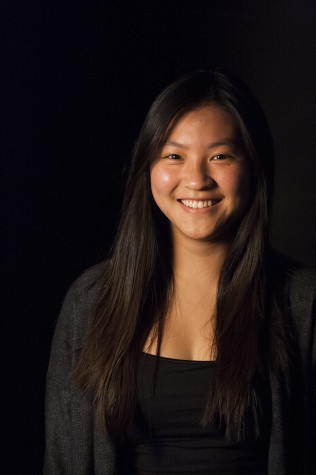A Pair Who Dig the Past
Hot weather, dodging holes, snakes, scorpions and spending months in the ground searching for thepast. This is the life, or part of it, of an archaeologist.
From Tunisia to Egypt, Italy, Libya and Greece, husband and wife, David Stone and Lisa Nevett have been digging around the world together for about eight years: and they aren’t about to stop now.
Although Stone grew up in Brookline, Massachusetts and Nevett grew up in London, England, they both ended up working for the University of Michigan–Nevett as a professor in the department of classical studies and Stone as a digital field data coordinator at the Kelsey Museum– and most of all, they ended up working in a field of study they both love; archaeology.
While the adventures that carry archaeologist Indiana Jones into the theaters don’t actually happen in real life, both Stone and Nevett still found this lifestyle interesting and worth every second of their time–aside from the time attributed to taking care of their daughter. “I wanted to be an archaeologist because I wanted to know something about people,” Stone said. “How people lived in the past, how they built their building, how they got their food, how they lived their lives…I thought it was interesting to learn about all those things.”
Stone started studying archaeology because of his curiosity and Latin classes, Nevett similarly was influenced by her language classes, but was exposed to her interest earlier on.
When Nevett was about six years old, her and her mother went to a museum in England that was exhibiting the tomb of tutankhamun (better known as King Tut), “We stood in the cue for over an hour outside of the museum in the cold and then we got in to see the artifacts …” she said. “ …it was really well displayed sort of dark and mysterious and then [the museum] had some spot lights on some of the finds and then the last thing you saw was the gold death mask of tutankhamun.”
Like many things in life, specific memories can really stick; Nevett’s first dig certainly did. She certainly wouldn’t have imagined herself laying on wooden planks four meters below the surface digging into the ground collecting charred seeds that were from about 1200 B.C..
Although, to any non-archaeologist, finding seeds doesn’t sound very interesting, Nevett said that finding seeds is very rare and archaeologists usually only find one or two seeds. “We went from sampling and carefully preserving these things that we had found and in the end there was just so much of the stuff they started piling it into some of the storage jars to take photos and things,” she said.
Though Nevett and Stone both study archaeology, their areas of interest within the field aren’t exactly the same. Stone has found himself to be more interested in Roman archaeology and traveling to other countries not just Italy. However, Nevett said that she thought the Greeks were more free flowing and believes to really learn about a place and culture you need to focus all your attention in one location, “ If you want to ask very complicated and difficult questions you have to know the data really well …because there is so much information,” Nevett said.
This opinion could also be attributed to the influence her colleagues had on her during her first dig. “It was just an amazing experience to be there and I was lucky to be digging with archaeologists who were very enthusiastic about Greece and knew the country…I think they just passed on the love of Greece; as a country as well.”
As life moves on sometimes interests are left undiscovered, and for both Stone and Nevett this was true. While Nevett thought music or radio journalism was on her list of ‘If I couldn’t be an archaeologist I would want to be…’, Stone leaned toward an occupation far from archaeology and one that hit a little closer to home, “I think I would have liked being a doctor or a national park ranger,” Stone said. “…you would be outside a lot and you’d be able to show people around a interesting place and you’d get to be in nature.”
Since their lives aren’t a movie, finding the holy grail or searching for a crystal skull is highly unlikely. However, more realistic findings include ancient coins with the faces of Athena or Julius Caesar, pieces of clay pot that have to be then put together by hand, bronze arrowheads, and in Nevett’s case a piece of the previously reconstructed Lecutra monument. “When I was doing a field survey I did find this big chunk of marble right in my transit,” she said. Soon after, her professor took her and the chunk of marble down to the monument and sure enough the monument that was reconstructed wasn’t constructed correctly, “He took one look at it and said ‘ well our chunk of monument shows that they reconstructed it wrongly ‘.”
While some see ancient Roman and Greek ruins as falling down old walls, Nevett and Stone are both content with traveling around the world digging into the past. Stone believes that the key to great archeology is a team. “You need to work with a team of people with different expertises in different areas …you get much better results if you work well with them … teamwork is really important,” Stone said. He also said that even when working alone at a desk a team can be great motivators.
Nevett sees archaeology as a reality check and makes you very aware of where the past is and where the past isn’t. “[Archaeology taught me] how fleeting the present is. How fleeting our lives are because the past is like another dimension you know the present is three dimensional , but the past adds a fourth dimension…It changes your sense of the present.”




